Editor's note: This story has been updated to fix several incorrect references to the first name of owner Steve Stepp.
Tameron Flatt grew up skating in Founders Park, across the street from the nondescript brick building in Downtown Springfield that houses National Audio Company. He had no idea what went on inside there until he saw a job ad for the place on Indeed about a year ago.
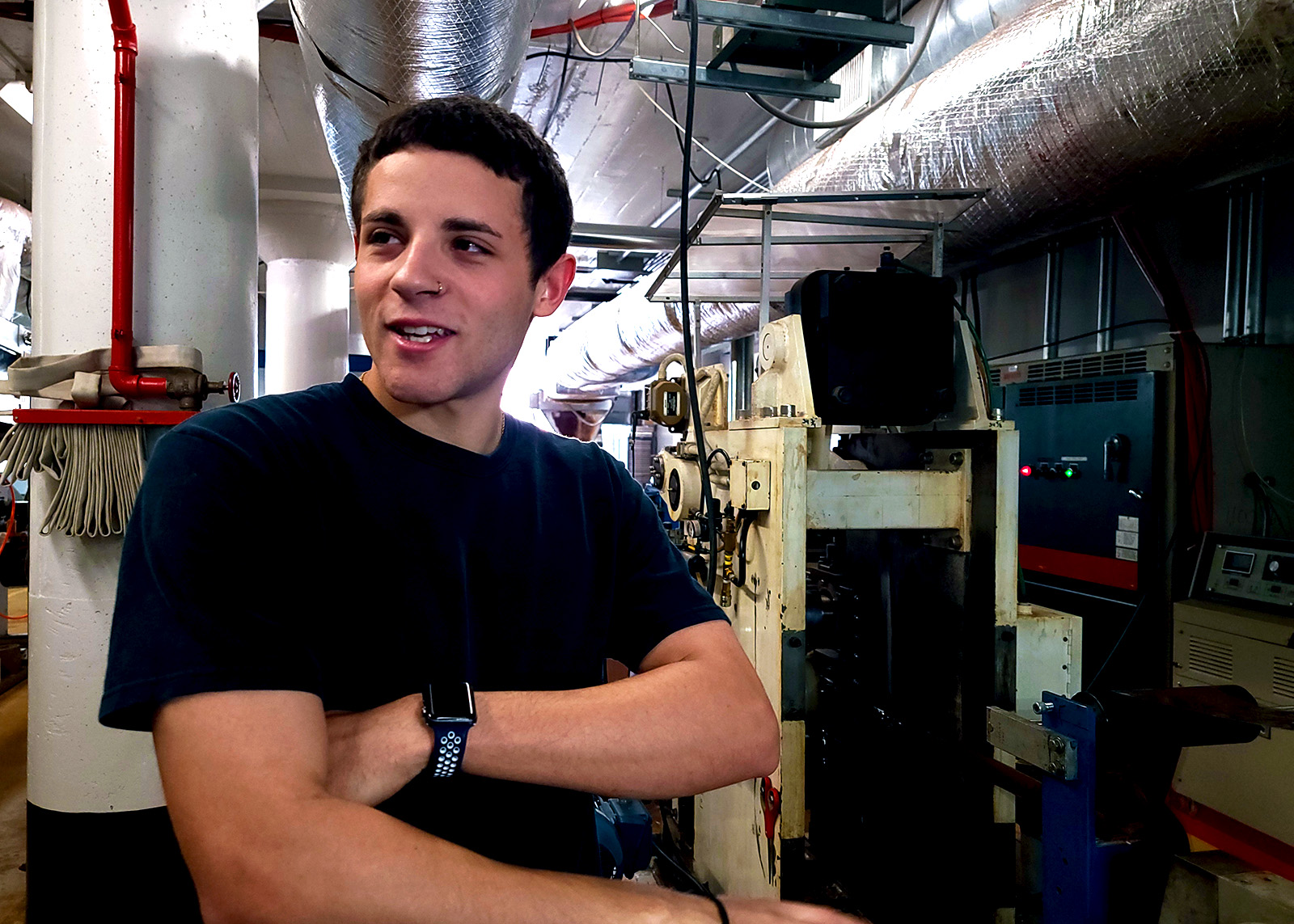
“It was just, ‘tape machine operator,” said Flatt, who got the job at the last cassette tape-making factory on this side of the globe. “I was like, that's pretty odd.”
Other than the words “National Audio Company” painted in black on a few brick walls of the connected five- and nine-story buildings that comprise one of downtown’s largest and oldest properties, the exterior offers few clues about what goes on inside.
You wouldn’t know how integral the staff and stuff inside are to the preservation of a form of media once omnipresent in the music industry: the cassette tape.
“I sound very egotistical saying this … but if National Audio Company were to go away, the cassette industry is gone,” owner Steve Stepp said. “It won't survive here or anywhere else in the world. We have a 95-percent market share in the Western Hemisphere, and we are the only company in the world making a music-quality cassette tape.”
That is why Stepp emphasized that National Audio isn’t going away, even though the property that houses it, its 40-plus employees and several commercial tenants went up for sale in late February.
“They don’t build them like this anymore,” reads the listing for the property at 309 E. Water St., across from Founders Park. The asking price for the 10-loading dock, eight-bathroom behemoth: $10,950,000.
The price takes into account the Herculean task of moving National Audio’s staff and untold tons of machinery to another location. Much of it was purchased from other cassette producers that folded in the 2000s, while other pieces were repurposed after past factory lives spent coating credit card strips or wrapping cigarette packs in cellophane. The owner ballparks the process as a six-month ordeal.
“I'm not looking forward to that move,” said Phil Stepp, Steve’s son and National Audio’s VP.
Steve Stepp wants Springfield and the cassette-buying public to know the business isn’t going anywhere, even if someone meets the asking price. Because somehow the cassette hasn’t gone anywhere. In fact, demand for the analog format continues to be on a bit of an upswing.
“It's going to keep operating,” Steve Stepp said. “It's going to be here in town. And as long as we're running the company, it's going to have these employees. And we've told them that. We told them we're looking at this because we had a lot of inquiries about it, but we've not had any offers. At this time, we're operating just like we have been and we're planning to do that unless somebody comes in here with a really big bag of money.”
National Audio consolidated much of America's cassette-making machinery in downtown Springfield over past couple decades
When you enter the first floor of National Audio, the cassette industry connection becomes a little more evident. A three-tiered rack with a couple dozen tapes featuring the work of Eminem, Blink 182 and other headliners sits on the 19th-century maple countertop by the front door. Those tapes, plus another 180,000 or so titles, have been manufactured here in Springfield.
On the second through fifth floors, it becomes entirely obvious. There are vats, ventilators, conveyors, ovens, oxidizers, loaders, slitters, dubbers, duplicators, wrappers and a vibrating sample magnetometer involved in the process. That's not a comprehensive list, and none of them fit in a Walkman.

“I didn't know what to expect, because I'd only ever been into the office,” said Justin Braunagel, National Audio’s duplication engineer, recalling his first day on the job five years ago. “It was a little overwhelming. There's just a lot going on everywhere. Lot of machines.”
People and machinery dedicated to every step of cassette production occupy the second and third floors. A master copy of every cassette ever made on those floors is stored on the fourth. And the fifth is full of used-up machines collecting dust until a part needs scavenging — as well as a second-string team of decades-old unused equipment waiting for a chance on the production line.
The cassette-making operations are primarily housed in the five-story facility, built in 1879. Commercial tenants take up four of the nine floors in the connected building, added in the 1920s. But under those four occupied floors, it starts to get roomy.
“We used to be big in the CD business as well,” Steve Stepp said. “We printed them and duplicated them and sold blanks and all the packaging and all that. That's dead. We won't sell $500 worth of CDs and CD packaging a week now. And so with that dying, we don't need nearly as much warehouse space for all the packaging we had with those.
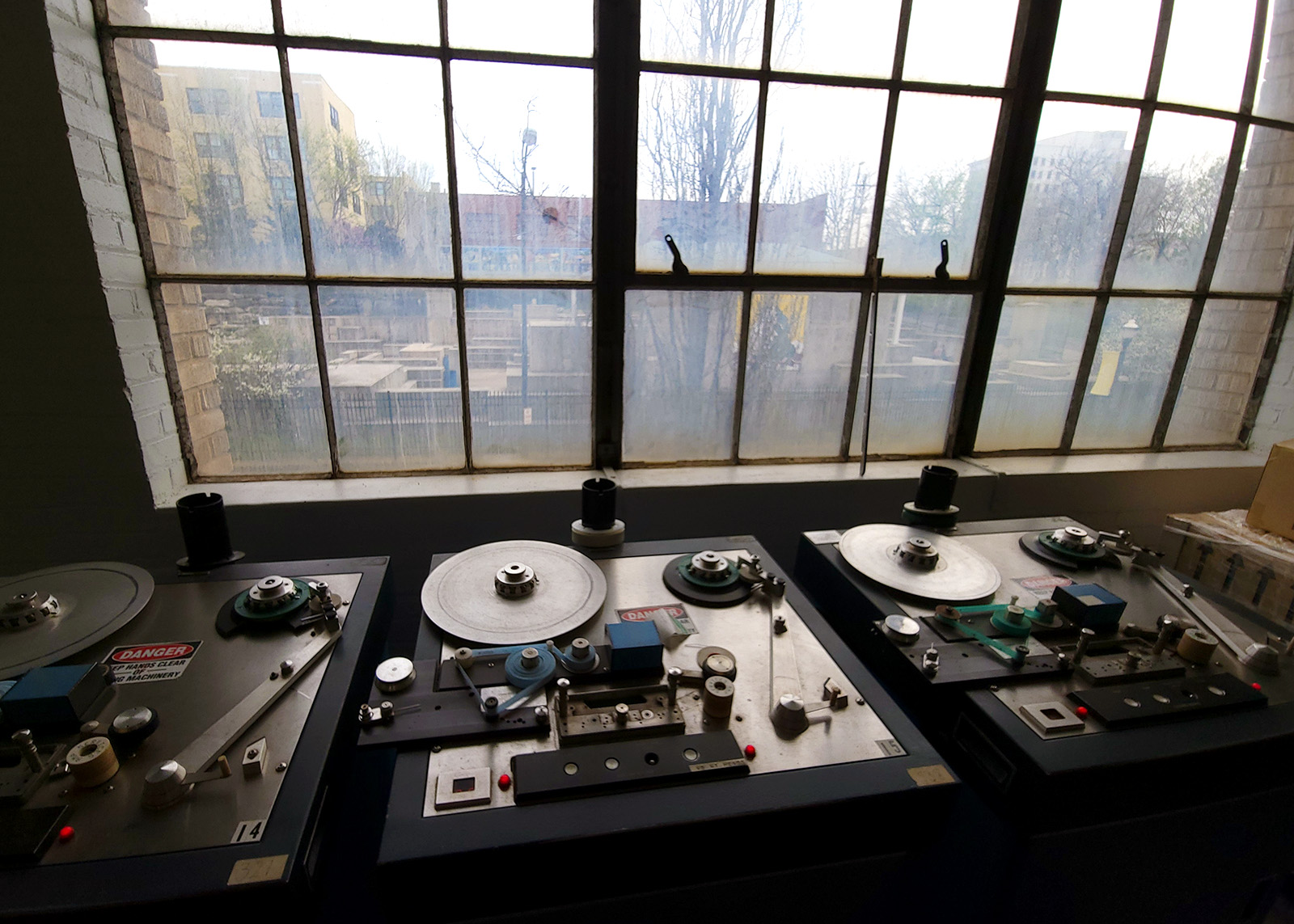
“Reel-to-reel tape is making somewhat of a comeback, but we don't make that. We just resell it for a company up in Pennsylvania. So we don't need as much room as we used to have, because a lot of it was just tied up in warehousing. The manufacturing that we do is actually limited to about 75,000 square feet. And the rest of it is just for storage of raw materials and things of that type.”
The vacant space, coupled with the tax and utility bills that come with owning the sixth-biggest property in downtown Springfield, is why the building, but not the company, went up for sale this year.
“We'd seen some people that had been sort of asking and prodding around about buildings downtown,” Phil Stepp said. “And this building is ginormous compared to what we need, and the utilities here are pretty crazy. We aren't charged actually with how much usage of utilities we have here. We are charged with the privilege of being able to draw this much power.”
These are the six biggest buildings in downtown Springfield. (Click to expand)
With 133,440 square feet of commercial space, National Audio has the sixth-biggest building in downtown, according to Brent Johnson at the Greene County Assessor’s Office.
- The 505 student apartment complex (505 E. St. Louis St.)
- The Vue student apartment complex (430 E. Walnut St.)
- Parking garage (302 E. McDaniel St.)
- Stillwell Columns apartments (525 S. Campbell Ave.)
- Heer’s Luxury Living (138 Park Central West)
- National Audio Company (309 E. Water St.)
The space has had numerous lives. It first housed McGregor Hardware, which grew alongside the Frisco Rail line. Among its previous tenants: a ceramics company, Dayco and BassPro, which used it as storage. In 1997, when National Audio Company moved in, it took two moving trucks a total of 44 trips over one weekend to haul equipment over to the space.
“It was back and forth, back and forth, back the whole weekend,” Steve Stepp said. “We lost one employee. He quit right there.”
Now, he said, it would take about six times as many truckloads to move out and months, not weekends, to get it done. That’s because as NAC’s cassette-producing competitors died off, the Springfield company doubled down and bought their gear. In the late '90s, National Audio wasn’t even duplicating music onto cassette. The employees were busy enough with books on tape, audio Bibles, blank cassettes, corporate instructional materials and courtroom recording systems.
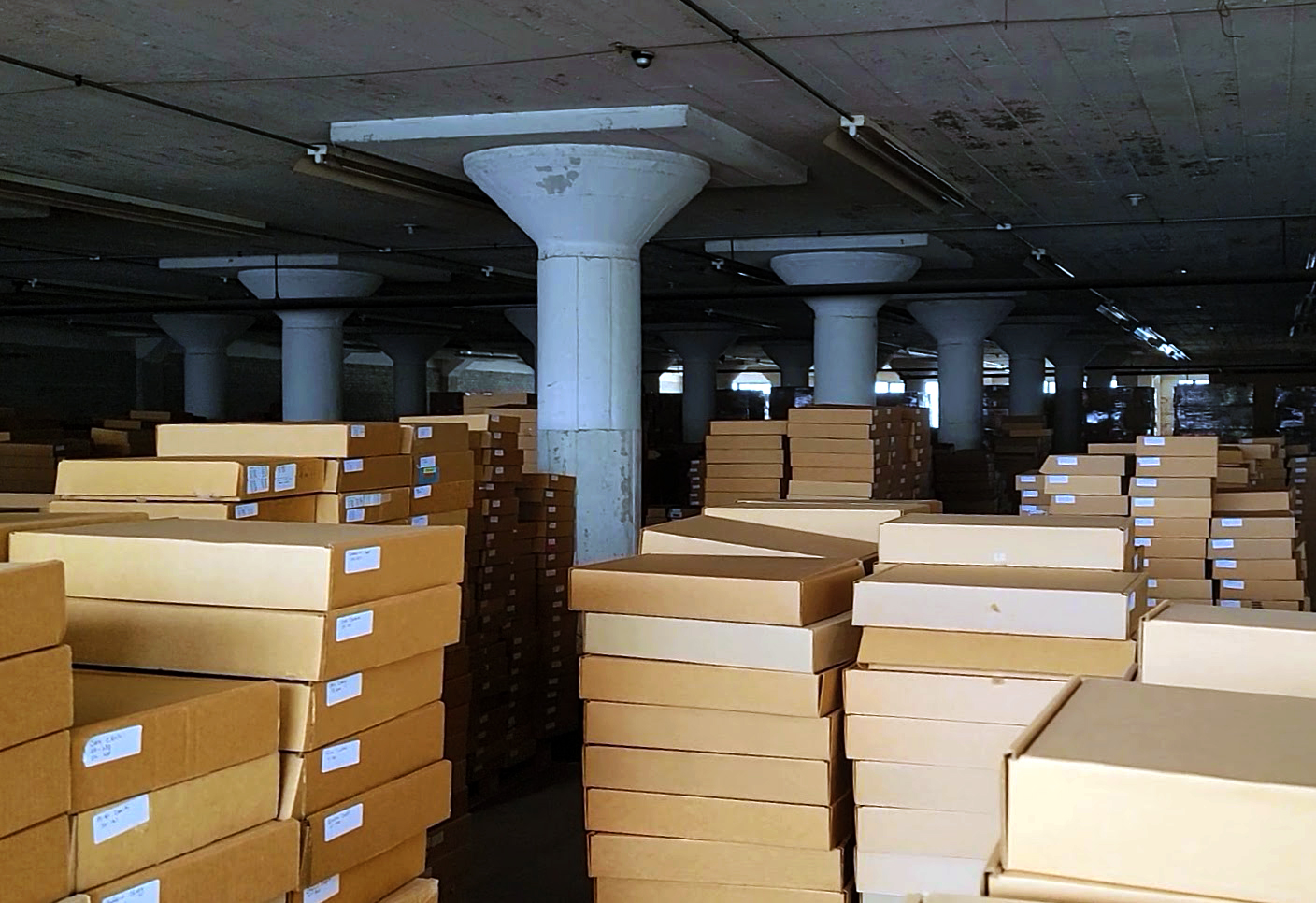
“And then all the big duplicators who were duplicating music just bailed out, got into CD replication and all their equipment became excess,” Steve Stepp said. “And we saw that, and we didn't believe the CD was the way of the future. And so contrary to common sense at the time, we went around buying up everybody else's equipment.”
Now the cassette production equipment once owned by the country’s major record labels calls the Springfield building home. Some ancient tape-loading machines are still shrinkwrapped up in storage on the fifth floor, waiting for the day that the current loaders can’t be repaired by salvaged parts from broken loaders or pieces re-invented by the staff’s mechanical engineer.
When the Stepps learned in 2016 that their South Korean supplier of music-grade tape was shuttering, Steve Stepp called and said they wanted everything they had. That amounted to about 300,000 reels of tape, or about three years’ worth of “pancakes” as they are called in the jargon-heavy industry. With a finite amount of tape left in the world, the Stepps knew they’d have to get in the exceptionally complex tape-making business, too. The 20-ton, 62-foot-long credit card strip-producing machine they bought from a Nevada factory had actually been used to make cassette tape before that. The National Audio team managed to redub it just in time to learn how to make tape with it.
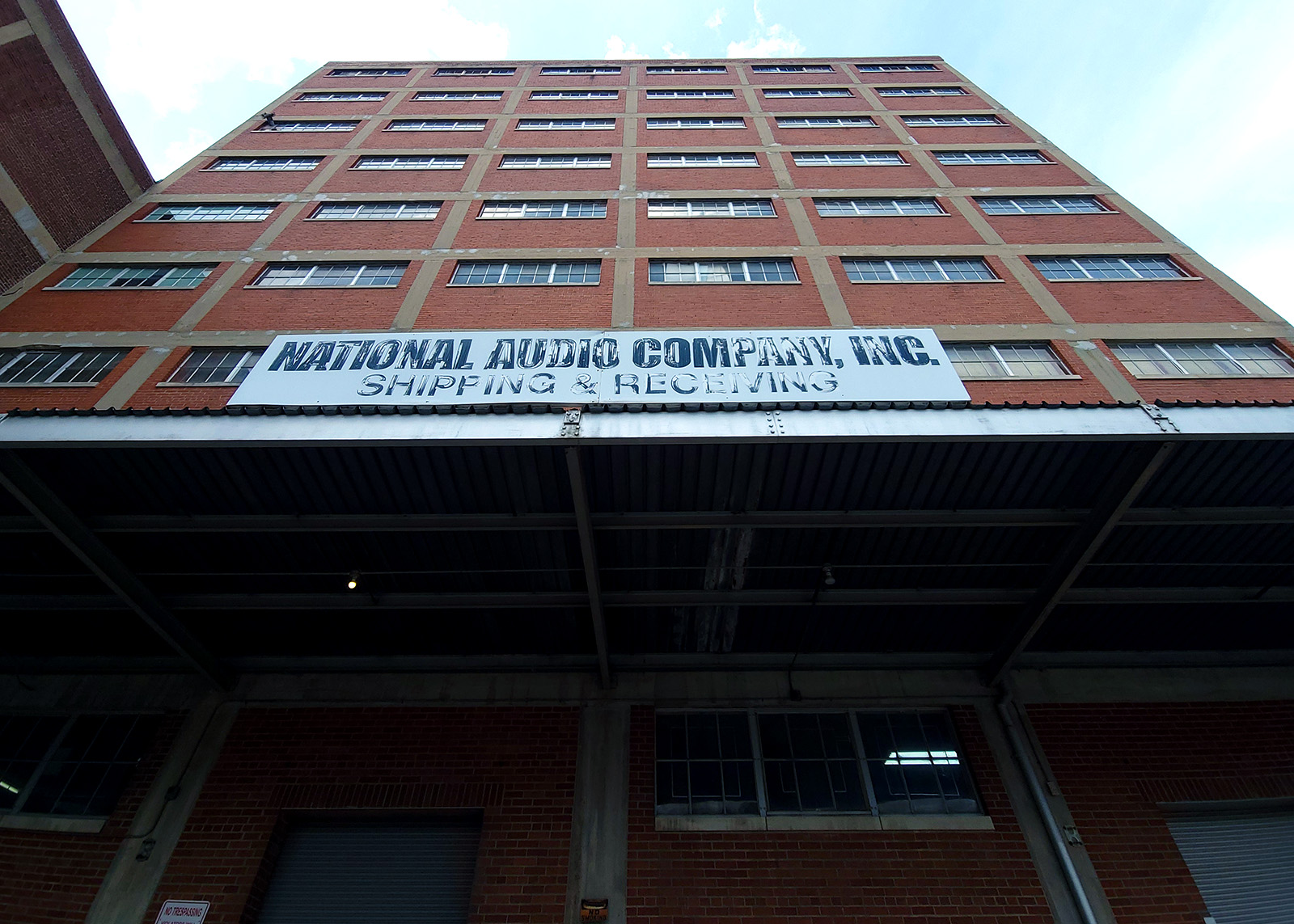
“The people who know what makes good tape good tape are pretty much all dead,” Steve Stepp said. “And we were able to catch the very last of those experts, the guys from the heyday of audio tape and have them help us learn to formulate tape, and how to coat it, and how to calibrate and all the other operations (on the second floor). Some of them are still living. But had we waited another five years, this would not have been possible. They would have all been too old or just gone. This was catching knowledge before it was lost, permanently. That's kind of what it amounts to here.”
Comeback of cassettes means National Audio has no plans to close
Phil Stepp avoided National Audio’s move to downtown. His dad had advised him to go to school and get a degree in another field because all signs in the late '90s pointed to the death of the cassette. While National Audio was plugging away in the non-music realms of cassette production, the writing was on the jewel case. So Phil Stepp got his Ph.D. in neuroscience and eventually taught at Drury University. But by the time he returned to his family business full-time in 2018, the cassette had returned, to a degree, too.
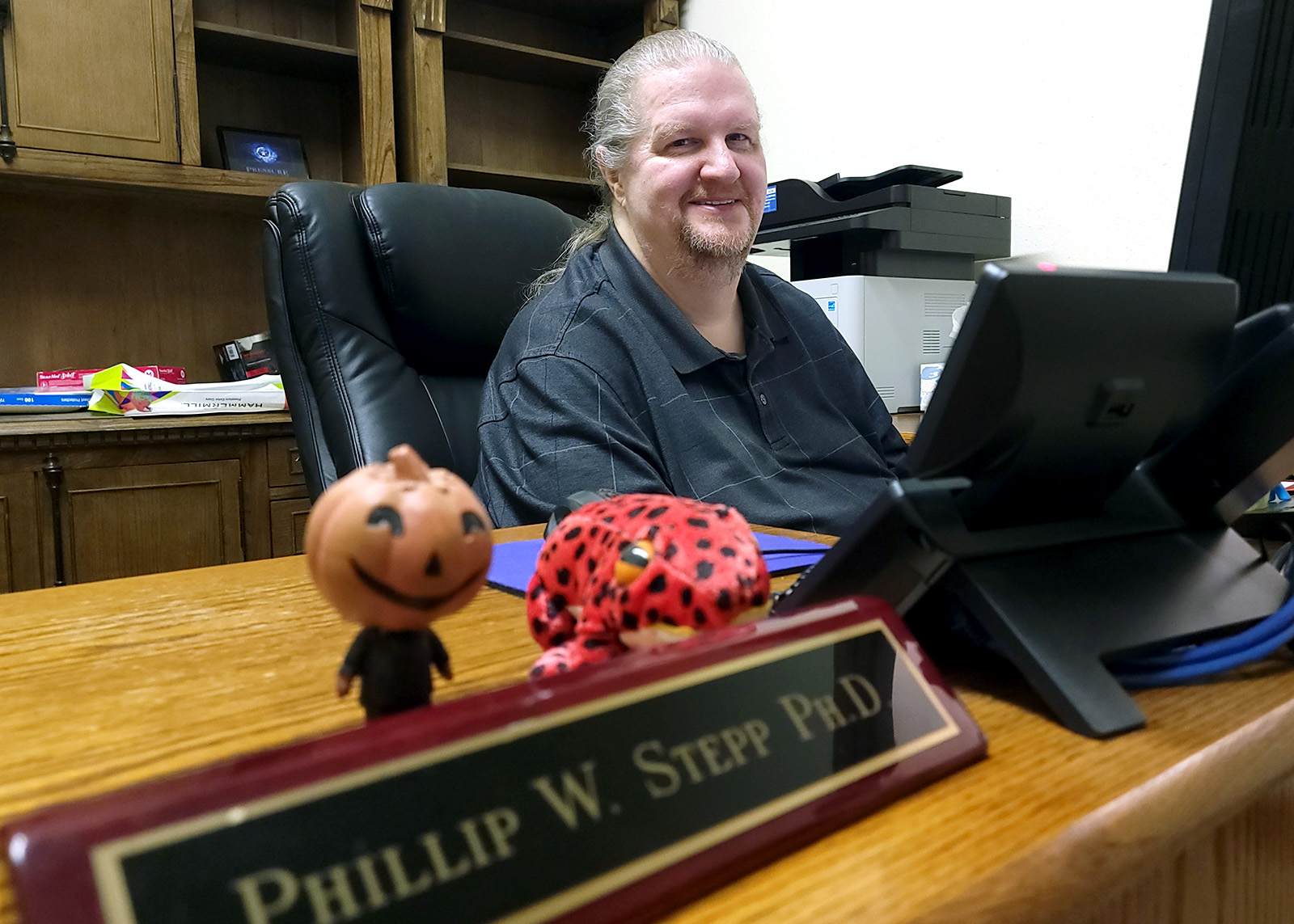
Year-over-year audiocassette sales measured by the industry-tracker Luminate rose by 28 percent in 2022, according to Billboard. They’re up from 74,000 in 2015 to 440,000 last year, and those totals don’t account for all the orders of 50, 100 or a few hundred tapes that independent bands and do-it-yourself record labels — including several in Springfield — order from National Audio. The Springfield company produces tapes for stadium acts big enough to require NDAs and punk acts small enough to play VFWs.
It’s been nearly a decade since a Marvel movie prop spiked renewed interest in the cassette among major labels. During a tour on April 6, the National Audio production crew was still labeling, stacking and loading copies of the latest runs of “Guardians of the Galaxy: Awesome Mix Vol. 1” and “Guardians of the Galaxy, Vol. 2: Awesome Mix Vol. 2.” Designed to look like the cherished classic rock mixtape Star Lord’s mom handwrote the tracklist to in the film, “Vol. 1” first sold as a limited run during 2014’s Record Store Day. And it keeps selling.
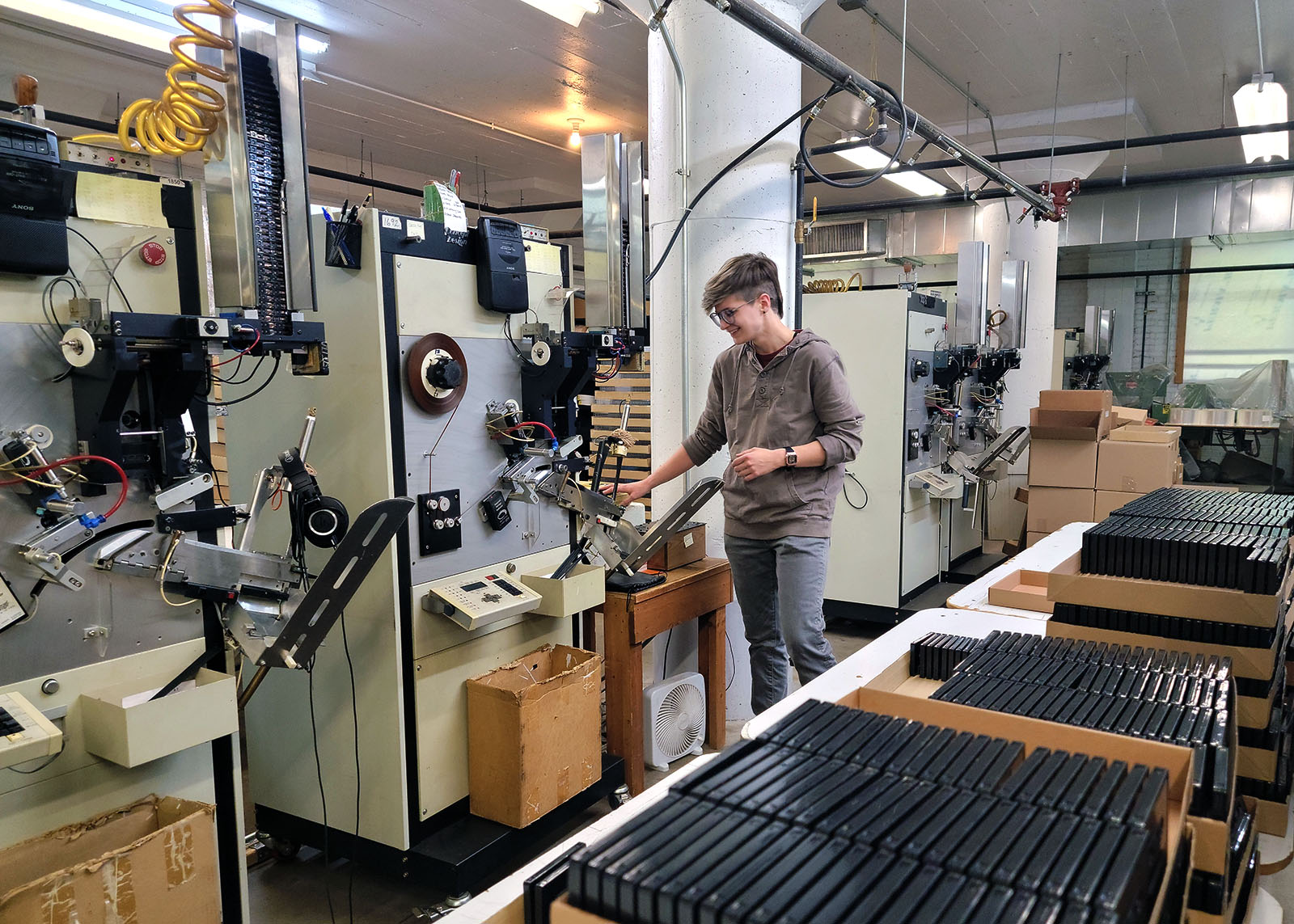
Three different “Guardians” tapes made the top-10 list of Billboard cassette sales in 2022. From the audio engineers and graphic designers on the first floor to the production crews on three, the National Audio team was anxiously awaiting the audio and art files that Disney is expected to soon ship their way for the tape they’ll make to go along with the film’s third installment, which premieres in May. The first run will be for 55,000 cassettes, Steve Stepp said.
“I'm sure they're getting prepared (to send files) because we just did ‘Guardians’ not that long ago, and boom, here we are again doing it again,” said Brooke Lewis, after an afternoon spent labeling and boxing 3,000 copies of the second installment’s soundtrack.
Accordion: Top-selling cassettes of 2022, according to Billboard (Click to expand)
1. Soundtrack, Guardians of the Galaxy, Vol. 2: Awesome Mix Vol. 2 (17,000 units)
2. Taylor Swift, Midnights (14,000)
3. Soundtrack, Guardians of the Galaxy: Awesome Mix Vol. 1 (13,000)
4. Harry Styles, Harry’s House (11,000)
5. Billie Eilish, Happier Than Ever (8,000)
6. Soundtrack, Guardians of the Galaxy: Cosmic Mix, Vol. 1 (8,000)
7. Nirvana, Bleach (7,000)
8. Bo Burnham, Inside (The Songs) (5,000)
9. Bad Bunny, YHLQMDLG (5,000)
10. Ghost, Impera (5,000)
At the same time as labels were being affixed to a run of Guardians cassettes, an Albany, New York, band’s limited run of red- and purple-colored tapes was making its way through the final packing process elsewhere on the third floor. The run of Bruiser & Bicycle’s “Holy Red Wagon” tapes, out next month on Portland-based Topshelf Records, was by no means Disney-sized.
“I think a lot of the discourse surrounding a cassette tape resurgence is biased towards the major labels,” said Andres Villogas, Topshelf’s A&R rep. For independent labels, there has long been a clear need for releases to be available on cassette, Villogas said, because it's cheaper than vinyl, more customizable than a CD and aligns with a do-it-yourself ethos of making art with limited tools and means.
“Go to any DIY show and you're sure to see merch tables full of tapes rather than any other medium,” Villogas said. “There is no rebirth from our end, just more people catching on to what is an incredibly viable and important tool.”
National Audio produces as few as 50 copies of a cassette if that’s what the client wants.
“There's a big market for tapes in hardcore, punk, black metal — specifically, death metal,” said Austin Baker, one of three audio engineers on staff. “I'd say that's most of the bands we do. I wouldn't say they order the biggest quantities, necessarily. But we definitely do more of that probably, than anything. And the noise stuff, which can be literally anything.”
Because National Audio is the only company around that takes on the entire cassette production process — there are two competitors in France and China — the staff has heard everything. Baker, one of many musicians on staff, said he’s discovered bands he would have never heard thanks to his job. He’s also been tasked with cleaning up all kinds of master tracks for optimal performance on cassette, including recently a recording of what Baker said sounded like someone dropping ping pong balls onto the strings of an amplified guitar. Noise stuff.
“I've heard the ping pong balls,” Phil Stepp said.
It’s one of the countless standout tracks that almost certainly wouldn’t be boombox-compatible if not for the Springfield-based operation.
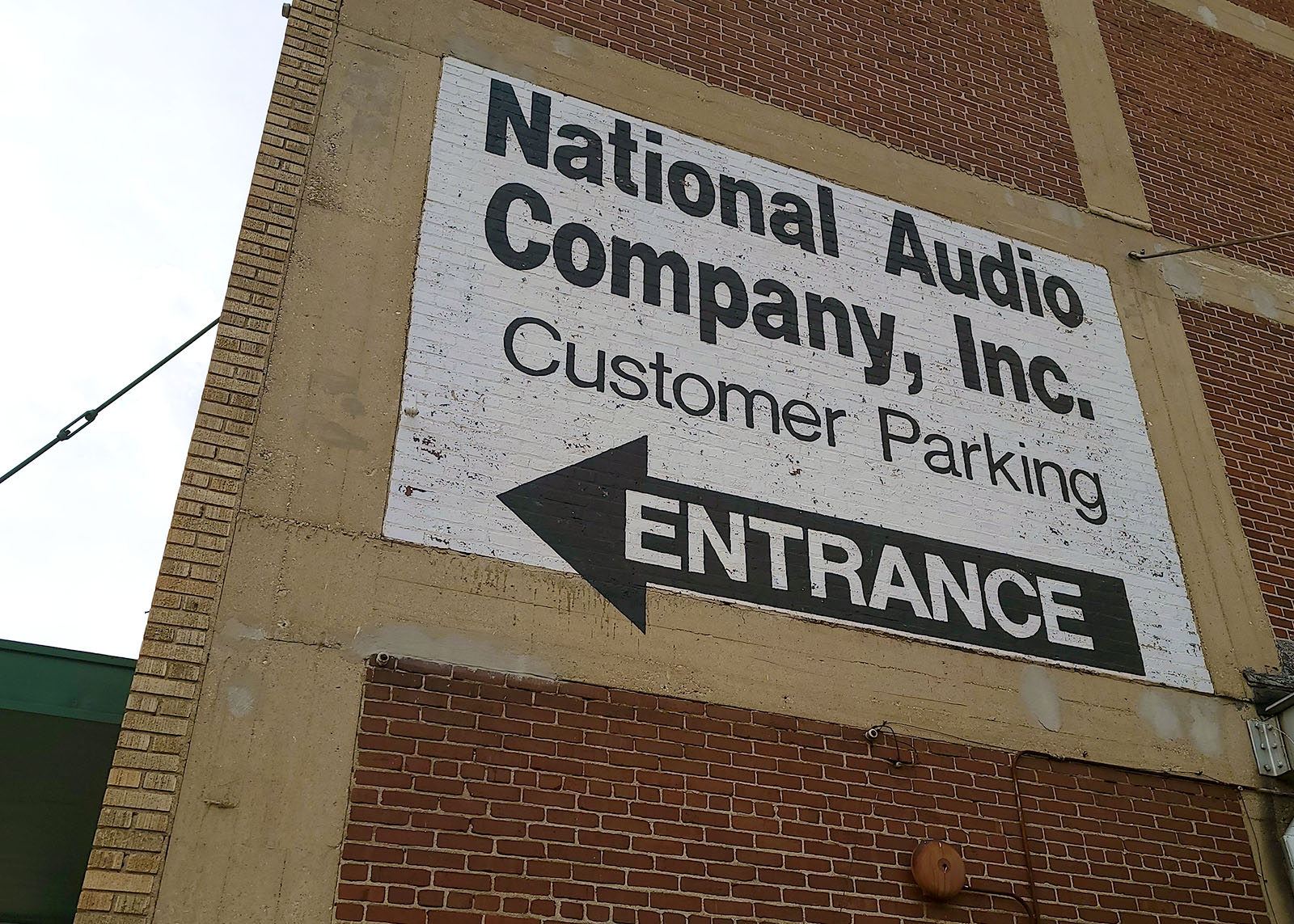
Steve Stepp said the preservation of the media keeps National Audio going, even as they test the market to see if there's a taker for the building where they rebuilt the cassette market.
“I think it's a certain matter of pride and appreciating what we've done and keeping the tradition going,” he said. “That's all a part of it. And there is a lot of loyalty to the audio cassette as a format. You know, a lot of people remember audio cassettes as kind of squeaky and scratchy back in the '70s, and '80s. And they owned the world back in the '70s and '80s. They didn't have to be good. You just had to make an audio cassette and you could sell it.
“Now people depend on a better quality of sound. And we have delivered that. And now that's become a standard in the industry. And that's the difference with us and everybody else, right now.”


